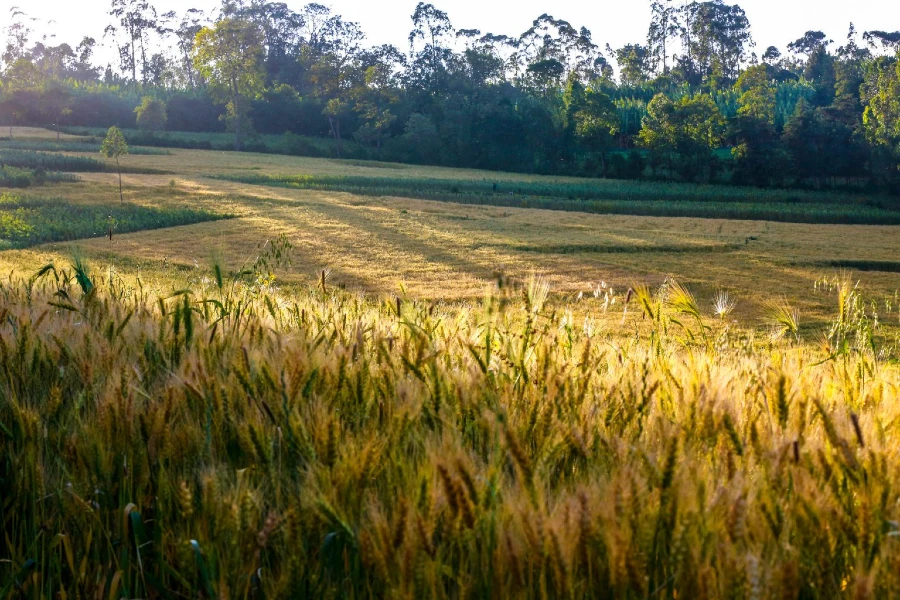Una iniciativa del CIMMYT pretende revolucionar la gestión del nitrógeno y reducir la dependencia de los fertilizantes en el Sur Global

En Fundación Novo Nordisk ha anunciado una subvención de hasta 21,1 millones de dólares a la Centro Internacional de Mejoramiento de Maíz y Trigo (CIMMYT) para un proyecto innovador destinado a reducir el impacto medioambiental de la agricultura. Esta iniciativa, denominada CropSustaiN, pretende desarrollar nuevas variedades de trigo que reduzcan la huella de nitrógeno de la agricultura, mejorando potencialmente la seguridad alimentaria mundial y la sostenibilidad medioambiental.
A medida que la población mundial se acerca a los 10.000 millones de habitantes, la dependencia de los fertilizantes para impulsar la producción agrícola se ha convertido en un factor crucial, pero problemático desde el punto de vista medioambiental. El uso de fertilizantes ha permitido que la producción de alimentos siga el ritmo del crecimiento demográfico, pero ha provocado un importante estrés ecológico. La lixiviación del nitrógeno en los ecosistemas y las emisiones de gases de efecto invernadero están llevando los límites medioambientales a umbrales críticos.
CropSustaiN aborda estos problemas mediante un proceso natural denominado inhibición biológica de la nitrificación (BNI). La BNI aprovecha la capacidad de las plantas para suprimir la nitrificación del suelo mediante la liberación de compuestos naturales, con el objetivo de reducir el uso de fertilizantes nitrogenados sintéticos sin comprometer el rendimiento del trigo ni la salud del suelo. Según Claus Felby, Vicepresidente Senior de Biotecnología de la Fundación Novo Nordisk, esta iniciativa podría cambiar significativamente las prácticas agrícolas, beneficiando al planeta y a los medios de subsistencia de los agricultores al reducir el uso de fertilizantes y los costes asociados.
No se lo pierda. Suscríbase a nuestro boletín para recibir los últimos contenidos directamente en su bandeja de entrada, o regístrese en GRATIS para obtener acceso completo.
Bram Govaerts, Director General del CIMMYT, destacó el potencial de la BNI para revolucionar la gestión del nitrógeno en la agricultura. Subrayó que esta estrategia de mitigación genética podría complementar los métodos existentes y disminuir significativamente la necesidad de fertilizantes sintéticos, con especial repercusión para el Sur Global.
La iniciativa CropSustaiN se basa en la investigación conjunta del Centro Internacional de Investigación en Ciencias Agrícolas de Japón (JIRCAS) y el CIMMYT que comenzó en 2015. La iniciativa ya ha desarrollado líneas de trigo BNI probadas durante tres temporadas agrícolas, listas para su posterior desarrollo y ampliación a escala mundial. El proyecto prevé validar la eficacia de las BNI en diversos climas e integrar la tecnología en las prácticas agrícolas habituales.
La subvención de la Fundación Novo Nordisk apoya un ecosistema de investigación colaborativa en el que participan el CIMMYT, el Instituto Internacional de Investigación de Cultivos para las Zonas Tropicales Semiáridas (ICRISAT), la Universidad de Aarhus, la Universidad de Aberdeen y la Universidad de Copenhague. Este ecosistema pretende fomentar la innovación agrícola y garantizar que las semillas desarrolladas sean accesibles a todos los agricultores sin derechos exclusivos de patente.
Aprovechando el proceso natural BNI, CropSustaiN pretende crear nuevas variedades de trigo que requieran mucho menos fertilizante nitrogenado. Utilizando técnicas de mejora convencionales, se incorporan genes de parientes silvestres para mejorar la eficiencia en el uso del nitrógeno. Este enfoque promete una solución escalable y rentable, que podría reducir el uso de fertilizantes nitrogenados en 20%, dependiendo de las condiciones agrícolas regionales.


Respuestas